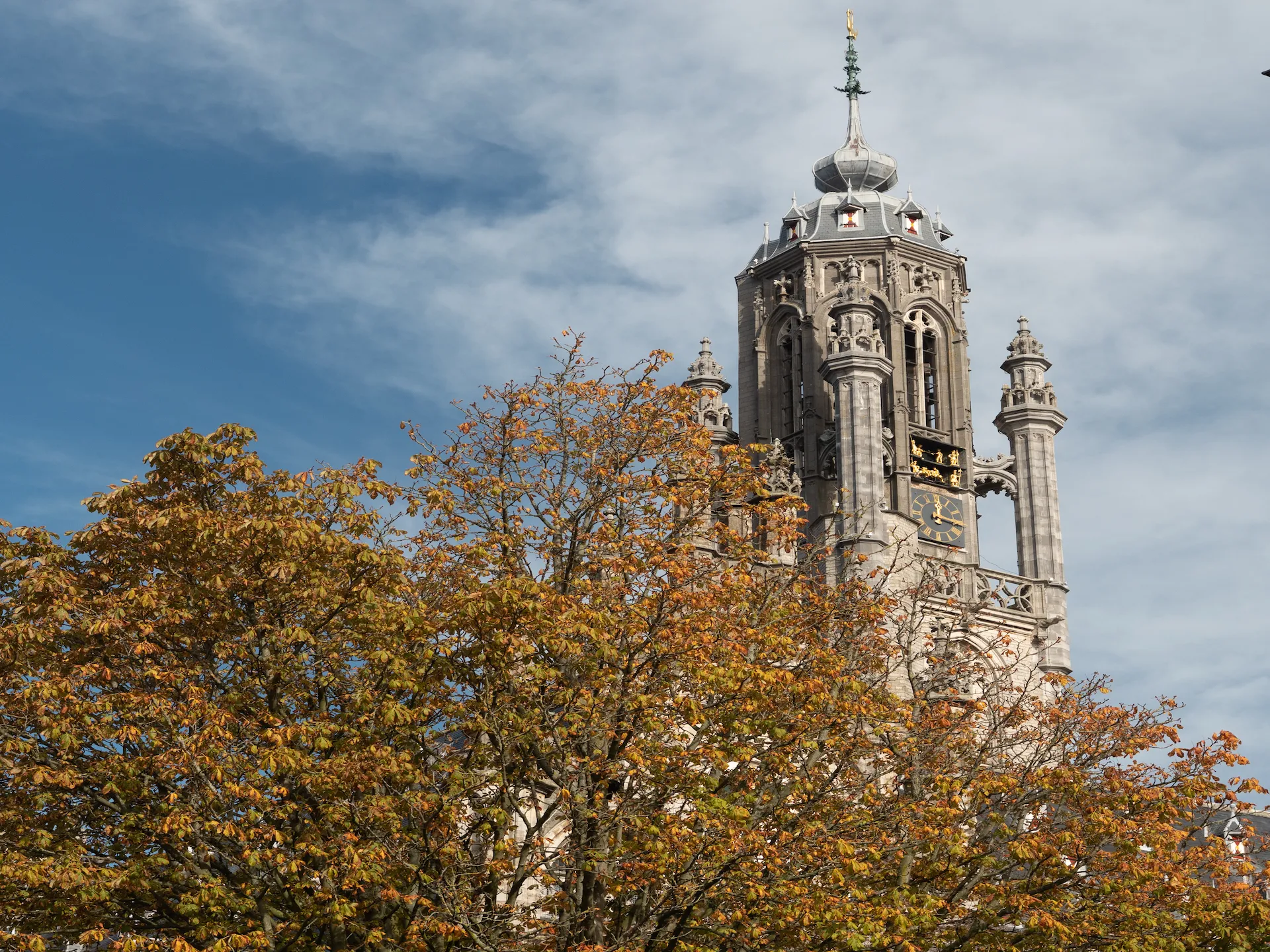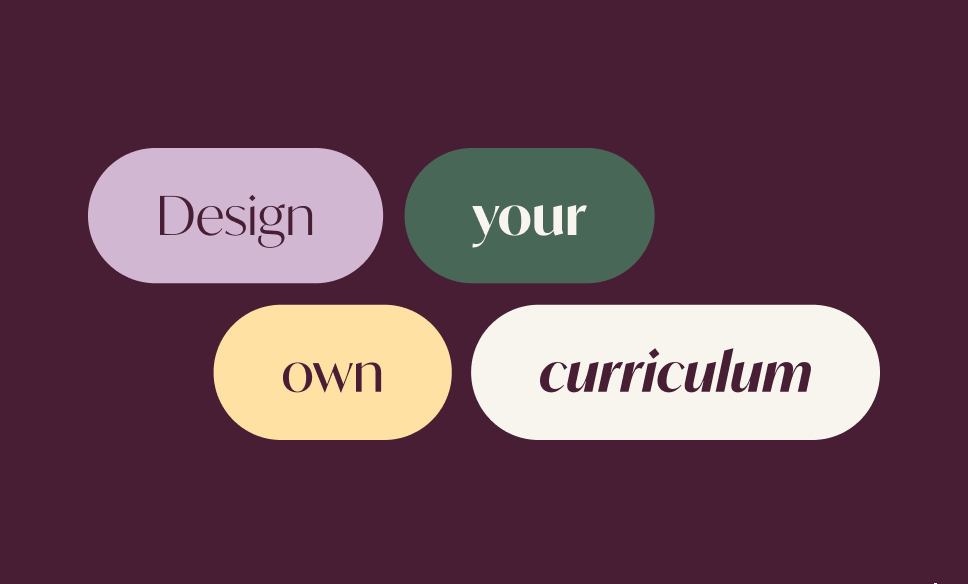Information for Parents
Information for Parents
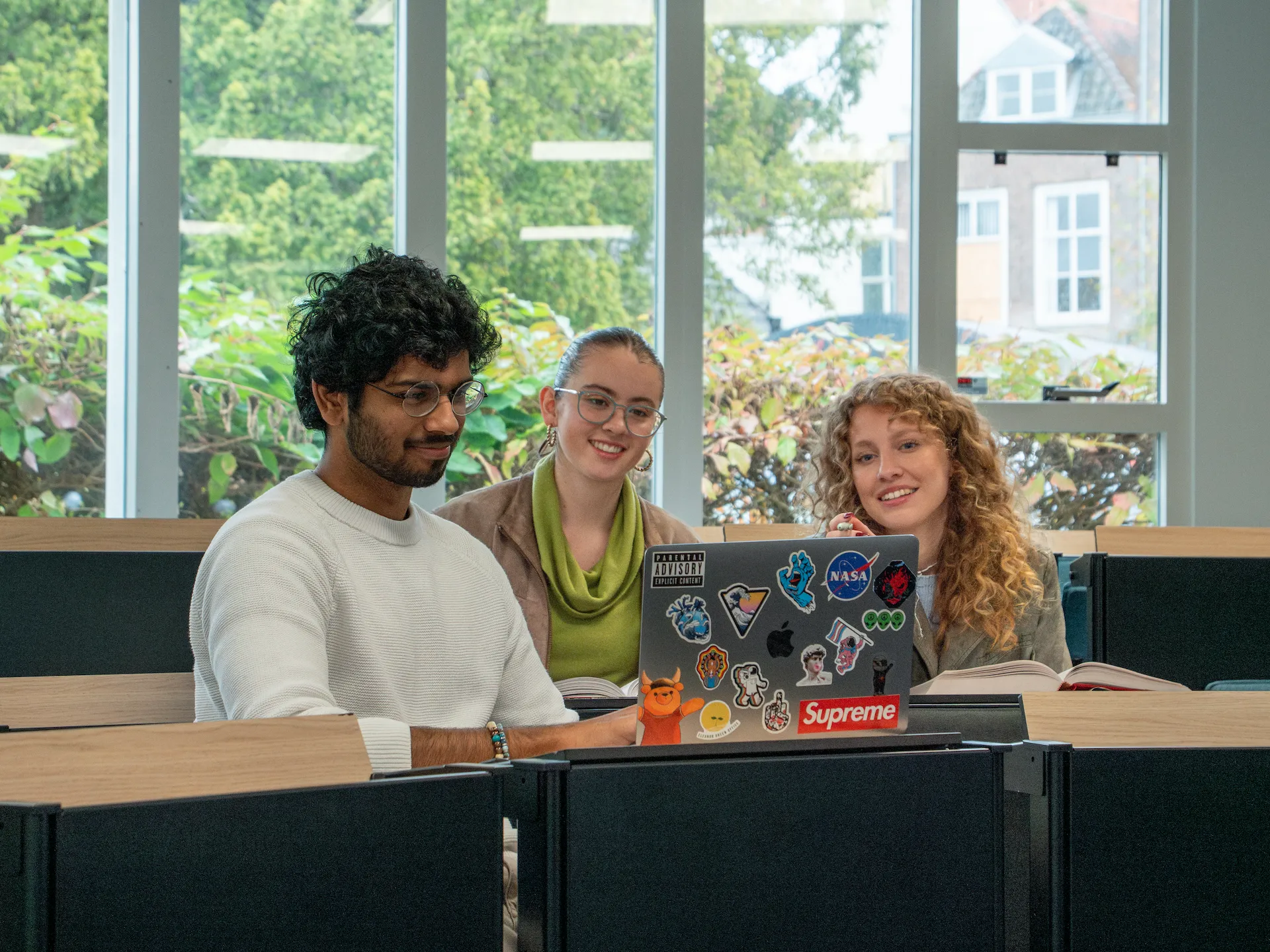
On this page you can find the key information about academics, student life, housing, finances, and support at UCR, giving you a clear overview of what matters most. You can explore this page at your leisure, or use the buttons below to jump to the section you are most interested in.
Academics
Academics
At University College Roosevelt (UCR), education is personal, interactive, and designed to prepare students for both academic and professional success. Professors encourage students to speak up in class, think independently while keeping the greater good in mind, and actively engage in their own research projects. Learning goes far beyond the classroom—students debate, deliberate, and exchange ideas with their peers from early morning until late at night, while developing the skills to express themselves convincingly in writing, public speaking, debate, and visual presentations.
UCR offers a three-year Bachelor’s degree in Liberal Arts & Sciences (LAS). This educational philosophy gives students the flexibility to explore multiple academic fields before choosing a direction. A student with interests in both Philosophy and Medicine, for example, can combine courses from both areas in a single degree program. Because LAS works best in a small-scale environment, UCR maintains a community of roughly 500 students, with an average class size of just 22. This ensures close interaction with faculty and a supportive academic atmosphere.
The program is flexible by design, yet structured to ensure students meet the necessary graduation requirements. To complete the degree, students must pass 24 courses in total. These include a mandatory first-year Personal & Professional Development (PPD) course, six advanced (300-level) courses—one of which must be research intensive—and a digital Liberal Arts & Sciences Portfolio that reflects their academic growth. Courses at UCR fall into two categories: core courses, which provide foundational knowledge and skills for future study (including Master’s programs), and responsive courses, which adapt to current issues, student interests, and developments in society.
Upon fulfilling the program requirements, students graduate with a Liberal Arts & Sciences degree, earning either a Bachelor of Arts (BA) or a Bachelor of Science (BSc) depending on their course choices. Students who specialize by taking a sufficient number of courses in one of UCR’s academic clusters—groups of related fields of study—may also have a major listed on their diploma.
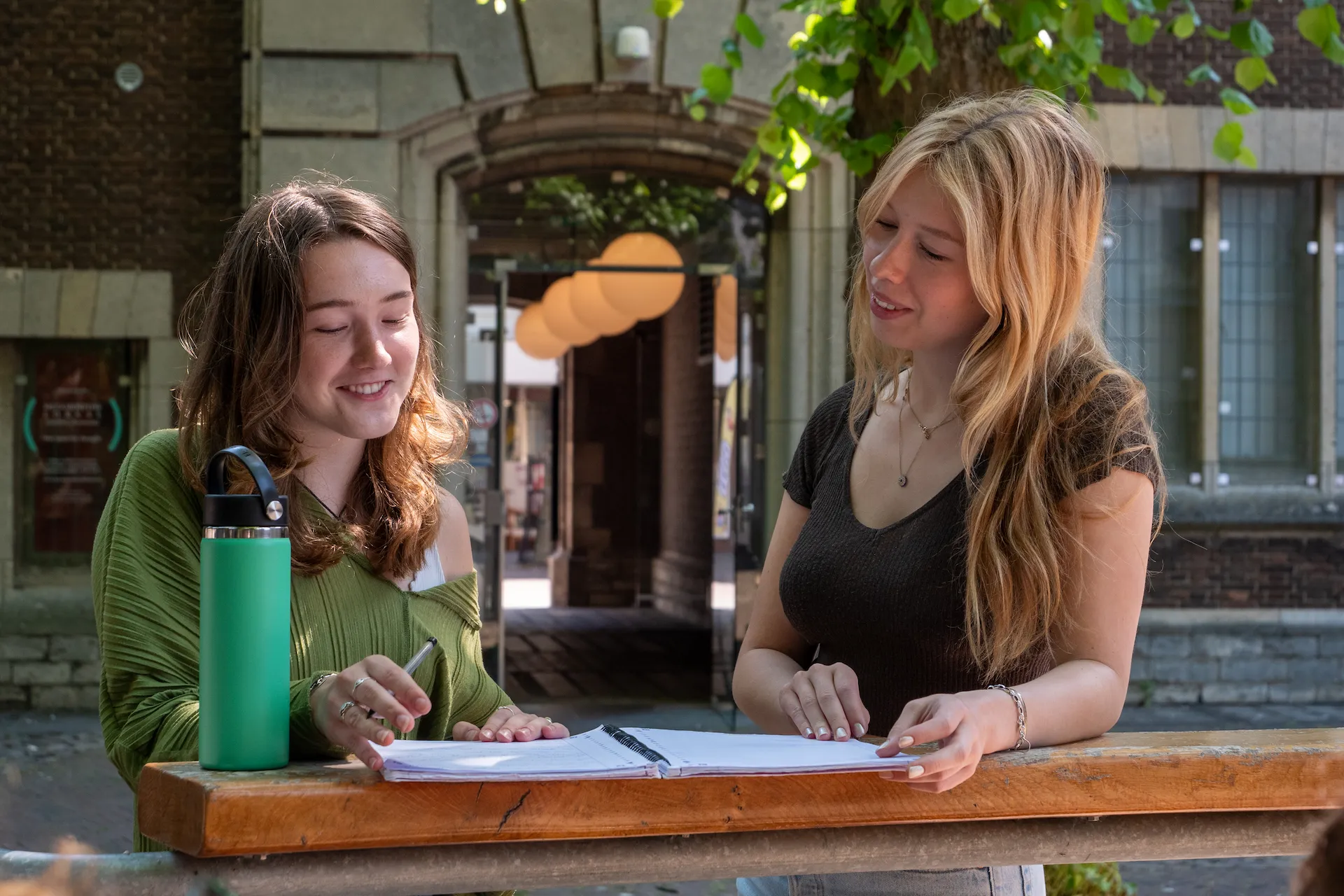
Housing
Housing
We believe that learning extends beyond the classroom. Day-to-day interactions with peers are just as valuable as formal study, which is why living on our inner-city campus is a mandatory part of the UCR experience. This not only guarantees housing for the full duration of the program but also ensures that every student becomes part of a close-knit residential learning community.
All student housing is within walking distance of the UCR academic building, spread across four locations. Students seeking the authentic Dutch student experience may choose Bagijnhof, where they live in shared student houses with a private bedroom but shared kitchens and bathrooms. In the other locations, students live in studio apartments with more private facilities. While the housing is not owned directly by UCR, it is overseen by our trusted partner, Gapph Student Housing.
Living on campus is both convenient and affordable compared to many other university towns. Parents can expect housing costs to average around €400 per month for rent, plus €150 per month in service costs for utilities, internet, and shared facilities. This brings the total to approximately €550 per month, or €6,600 per year. As room sizes and arrangements vary, these figures should be seen as an estimate, but they provide a realistic sense of the financial commitment.
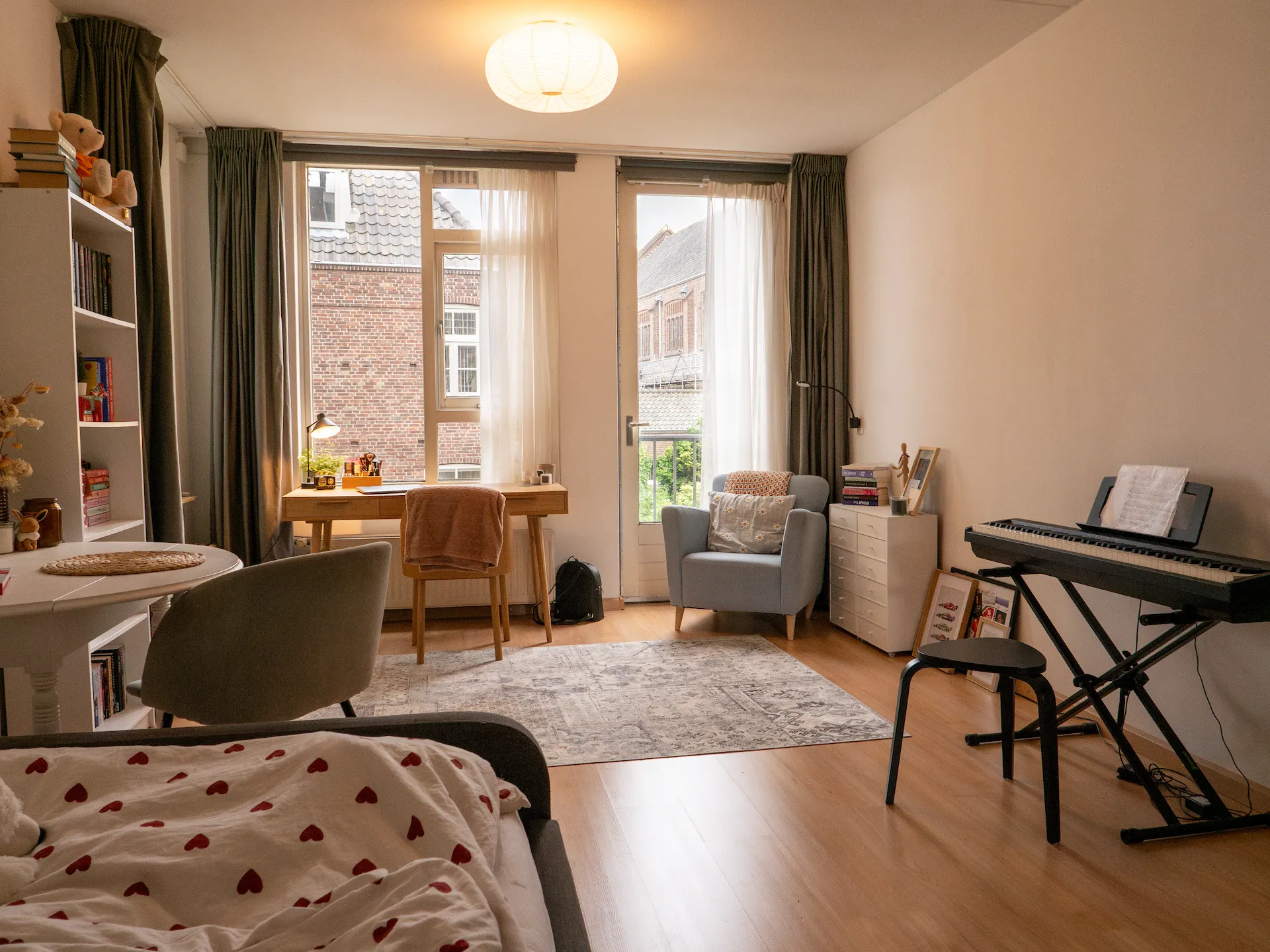
Support for Students
Support for Students
At UCR, students are supported academically and personally throughout their journey. Each student is paired with a dedicated Tutor, a senior staff member who meets with them every semester to discuss progress and future plans, and who is always available for questions or guidance. Tutors can also connect students with the right services when extra support is needed.
For more personal challenges, UCR offers access to a professional student counselor for confidential one-on-one support. In addition, students can use MoodLift, an online tool that helps them work on focus, motivation, sleep, and mood.
Well-being is part of campus life, too: the Eleanor well-being area provides space for meditation, yoga, or quiet time—with sleeping pods for rest—while the Anne Garden offers a peaceful green retreat.
Finally, for students with (learning) differences, UCR provides study provisions on a case-by-case basis, working with students to find the best possible solutions.
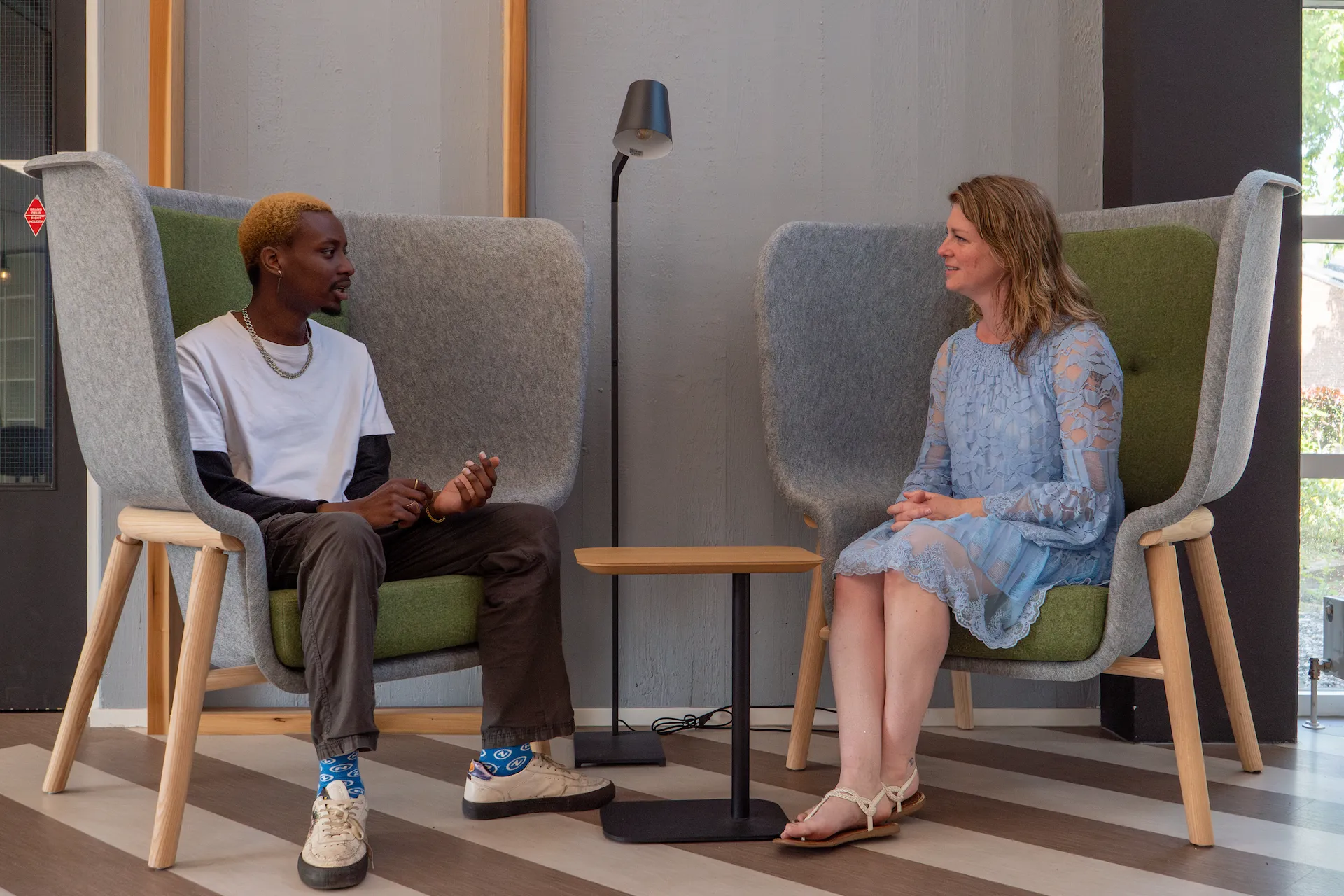
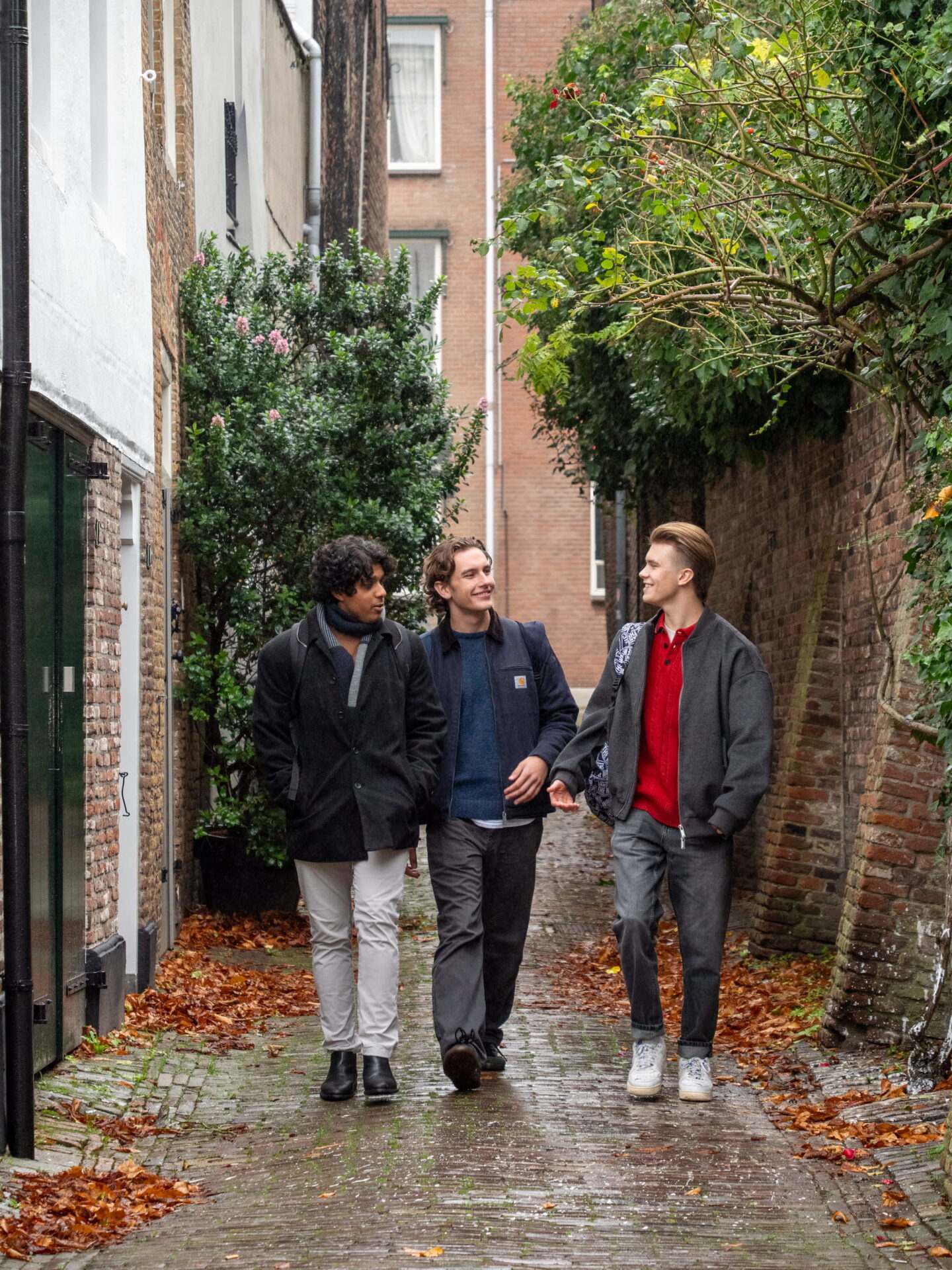
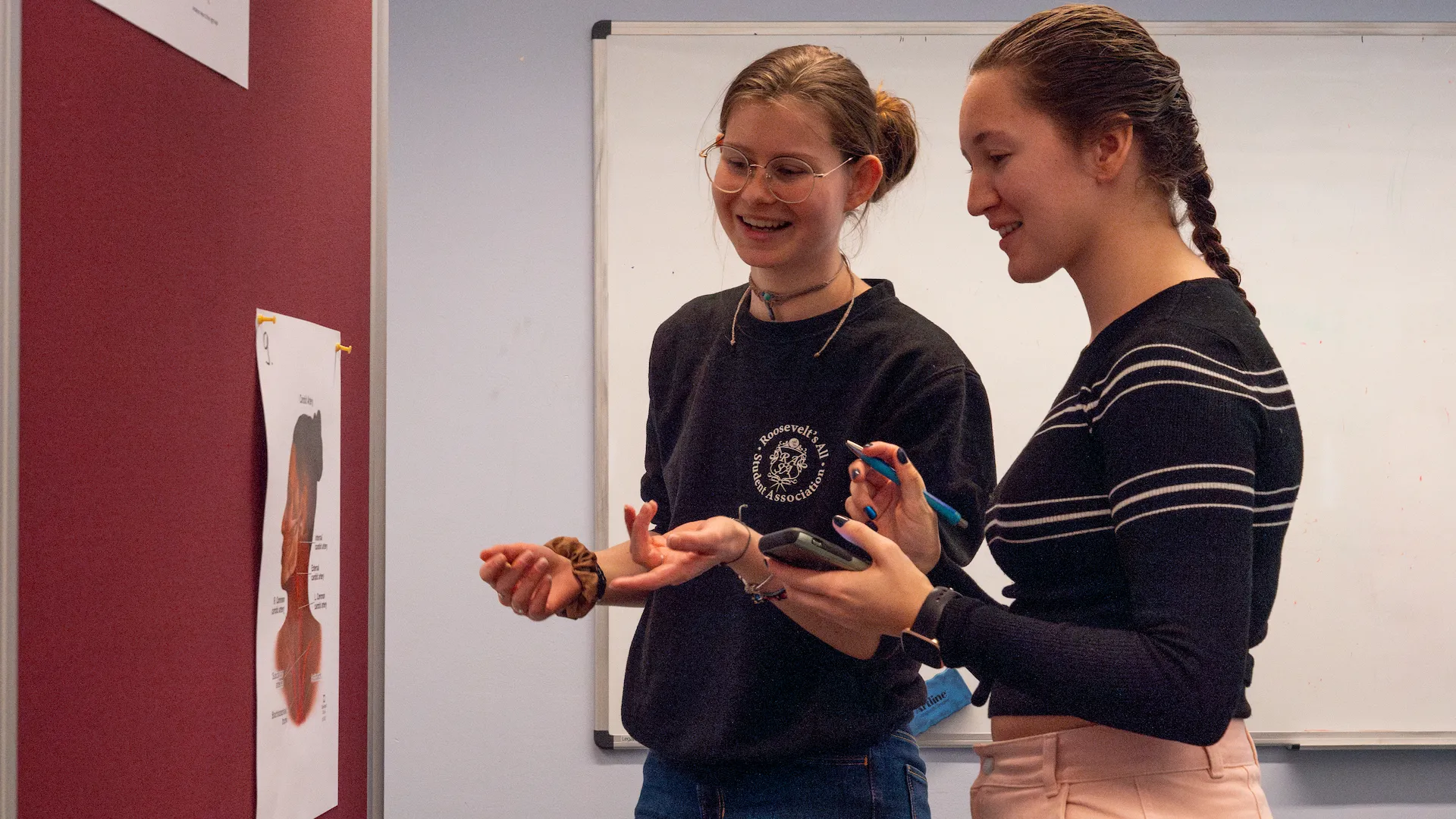
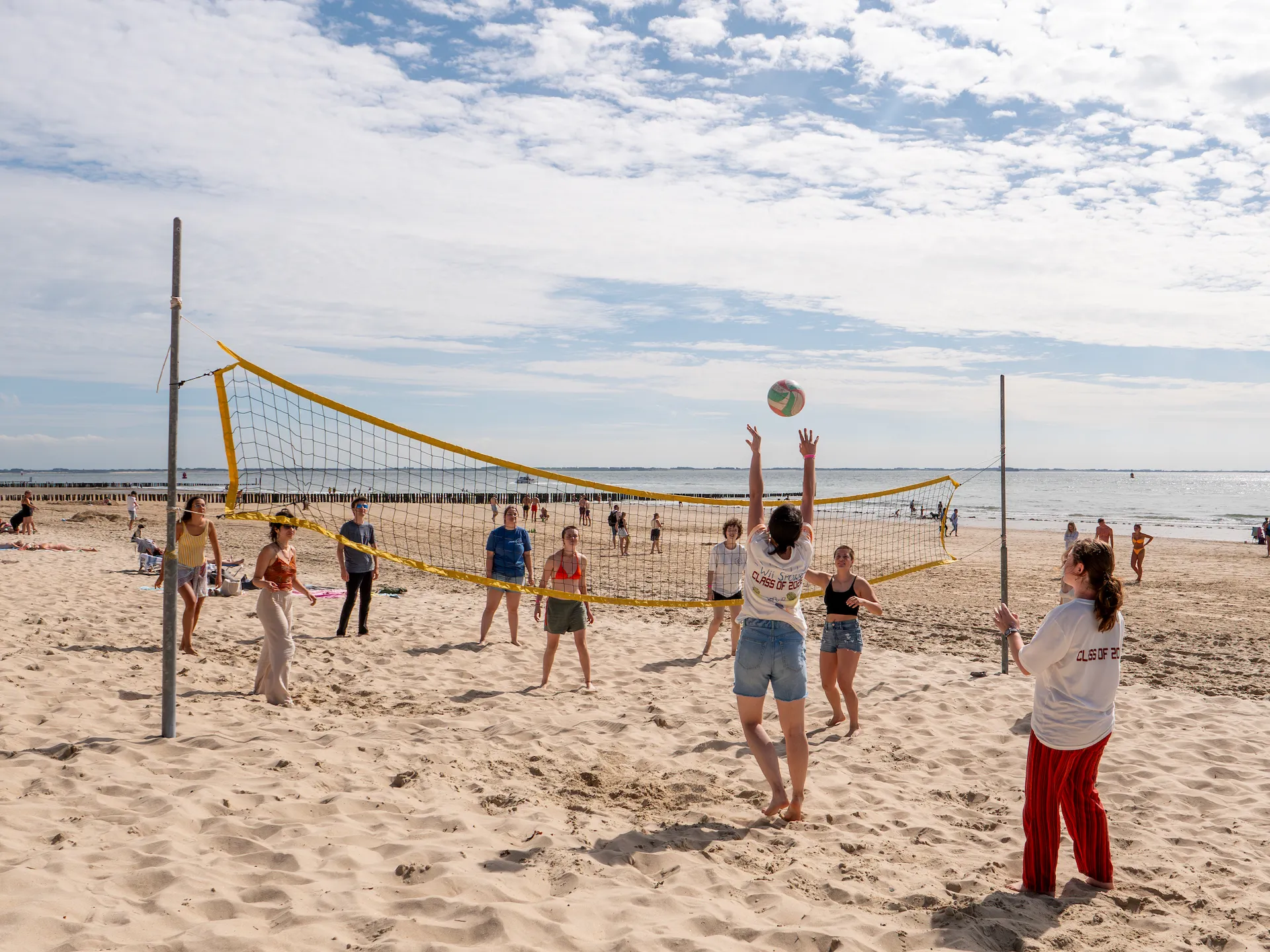
Tuition Fees and Costs
Tuition Fees and Costs
The cost of studying at UCR consists of tuition fees, housing, and daily living expenses. A student’s tuition fee is determined by their passport and fee status.
All students live on campus as part of our residential learning community. Housing costs average around €400 per month for rent, plus €150 per month for service costs (covering utilities, internet, and shared facilities). This brings the total to about €550 per month, or €6,600 per year. Since room sizes and housing arrangements vary, these figures should be seen as an estimate.
In addition, students should budget for daily living expenses such as groceries, books, insurance, local travel, and leisure activities. On average, this comes to about €500 per month, or €6,000 per year.
Students may also choose to work alongside their studies. European students can work without a permit but must arrange Dutch health insurance. Non-European students may work up to 16 hours per week with a work permit. On-campus jobs are limited to 8 hours per week, to ensure that academics remain the top priority.
Scholarships and Funding
Scholarships and Funding
At UCR, tuition can be paid in full at once or in up to nine monthly instalments. A one-time administrative fee of €25 applies if you choose the instalment plan. Please note that first-year non-European students are required to pay tuition in full, as part of Dutch visa regulations. From the second year onward, they may also pay in instalments.
For students who do not have the means to fully fund their studies, UCR offers a limited number of need-based scholarships. These are available to students whose parents’ combined annual net income is below €40,000. The amount awarded depends on whether the student pays European or non-European tuition fees. Some scholarships cover a single year, while others are awarded for the full three years of the program.
In addition to UCR’s own scholarships, there are also external funding options, including support from the Dutch government.
Admissions
Admissions
The procedure for applying to UCR is straightforward. Students first register in Studielink, the national Dutch application portal, and from there are directed to UCR’s own application system, OSIRIS. In OSIRIS, they upload all required documents, provide details for a referee, and submit their final application.
Applications are accepted twice a year:
-
For a September start: applications open on October 1, with several deadlines in the spring.
-
For a January start: applications open on July 15, with deadlines in the preceding fall.
Once the application is complete, and referees have submitted their recommendations, the UCR Admissions Team begins the review.
The next step is the UCR online selection assessment, hosted on the Kira platform. They have two weeks to complete the assessment but may do so at any time convenient to them.
After reviewing both the OSIRIS application file and the Kira assessment, the Admissions Team decides whether to offer the applicant a place at UCR. It is our aim to communicate this decision within ten Dutch working days of the completed Kira assessment.

